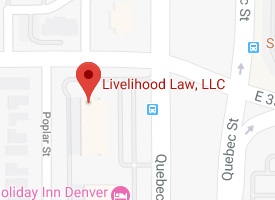When we hear “social security,” we often first think about retirement benefits and older workers leaving the workforce after a long career. But the Social Security Agency, created to promote economic stability for U.S. workers, provides a lot more than just retirement benefits. The agency also has programs that provide:
- Survivors Insurance for the families of deceased workers,
- Disability Insurance for disabled workers and their families,
- Medicare health insurance for retired workers, and
- Supplemental Security Income, a means-based supplemental income for the elderly or disabled.

What is SSDI?
Social Security Disability Benefits (SSDI) is a federal insurance program available to all qualified disabled workers regardless of their financial resources. SSDI provides cash benefits to people unable to work for a year or more because of a disability. Benefits continue until you can regularly work again or until you reach retirement age. At retirement age, your disability benefits convert to retirement benefits. After being eligible for SSDI for two years, you are also eligible for Medicaid.
Who Qualifies for SSDI?
To qualify for SSDI benefits, you’ll have to both medically qualify and have enough work credits.
- Medical Qualifications for SSDI
Medically qualifying for SSDI doesn’t just mean that you can no longer work at your job. For the social security administration to consider you disabled, you must have a long-term disability, meaning a disability that is anticipated to last 12 months or more, or a permanent disability that completely prevents you from performing any type of work. If, in the opinion of the SSA, you can perform a different kind of work than what you have done in the past, you may not qualify for SSDI.
The SSA publishes a Blue Book of medical listings that outlines some conditions that might qualify people as disabled, including:
- Sensing and speech conditions such as vision impairment, blindness, or hearing loss.
- Qualifying musculoskeletal disorders including joint and bone dysfunctions and debilitating back or spinal disorders.
- Respiratory conditions such as severe asthma, COPD, and mucosal fibrosis..
- Cardiovascular disorders such as chronic heart failure and other cardiovascular disorders.
- Neurological conditions such as epilepsy, Huntington’s disease, and Alzheimer’s.
- Blood disorders like hemolytic anemias, clotting disorders, and multiple myeloma..
- Some long-term cancers such as leukemia, lymphoma, or skeletal system sarcomas..
- Mental disorders such as schizophrenia, neurocognitive disorders, autism spectrum disorders, neurodevelopmental, and impulse control disorders.
- Work Credits for SSDI
In addition to proving you have a long-term or permanent qualifying disability, you must also have enough work credits to qualify for SSDI. Each year that you work and pay FICA taxes into Social Security, you earn work credits. You can earn a maximum of four credits each year, depending on how much you earn and your employment activity. In 2022, $1,510 in earnings equals one work credit; you earn four credits after earning $6,040. The number of work credits you need in order to qualify for SSDI may vary, but typically:
- Under Age 24: You need at least six work credits in the three years before you became disabled.
- Ages 24 to 31: You need credits for working half the time between the age of 21 and the age you became disabled.
- Over Age 31: The number of work credits you need varies by age, ranging from 20 work credits at ages 31 to 42 up to 40 work credits at age 62 or above. Typically, you need to have earned at least 20 of the credits in the last ten years before you became disabled.
Working with a Social Security Attorney
Unfortunately, even if you believe you qualify for SSDI and have the proper medical documentation and work credits, that doesn’t mean SSA will automatically approve your application. Many applicants must appeal an initial denial from the SSA.
If you think you qualify for SSDI benefits and need help either with the initial application or with an appeal, call us today.
If You Have An Employment Issue, We Can Help
Navigating the ins and outs of an employment case can be extremely difficult to do without legal counsel. Livelihood law is here to help. Contact us to discuss your matter with one of our experienced employment attorneys.


